Spreader deflection/mast stiffness |
Post Reply 
|
Page <12 |
| Author | |
sargesail 
Really should get out more 
Joined: 14 Jan 06 Location: United Kingdom Online Status: Offline Posts: 1459 |
 Post Options Post Options
 Quote Quote  Reply Reply
 Topic: Spreader deflection/mast stiffness Topic: Spreader deflection/mast stiffnessPosted: 15 Oct 12 at 11:10pm |
|
I don't think it's got much to do with compression: rather by increasing the length of the spreader you increase the angle between between mast and shroud at the point where they meet. This therefore means that there is more resistance to the side force on the mast above the spreaders and therefore less sideways bend in the upper section of the mast. For many boats this has a significant effect on available power but also "tunes out" some of the automatic gust response. If I sail someone elses 2K I find I need to play the main less but lack the power.
As for the spreader lengths and tensions: if you must have the same you can can achieve the effect by shortening the halliard or forestay rather than adjusting rake by moving the position of the shrouds in the shroud adjusters. Hope that simplifies things?
|
|
 |
|
Oatsandbeans 
Far too distracted from work 
Joined: 19 Sep 05 Location: United Kingdom Online Status: Offline Posts: 382 |
 Post Options Post Options
 Quote Quote  Reply Reply
 Posted: 16 Oct 12 at 9:41am Posted: 16 Oct 12 at 9:41am |
|
I don't really go with that theory. Try looking at it this way. If you have a mast with shrouds but no spreaders as the wind loads up the sail, the topmast will bend to leeward. When this happens the mast between the hounds and deck level will bend to windward, with the mast forming a smooth arc. If you now put a set of spreaders on they restrict the movement of the mast under the hounds to move to windward. This has the effect of reducing the movement of the tip of the mast to leeward. As you increase the length of the spreader it pushes more on the mast thus increasing the stiffening effect on the upper mast section. If this is overdone you can get an S- shape develop in the mast sideways, which normally means that you have overdone it on spreader length. (Note Just because Adam Bowers, allegedly, once said that " increasing spreader length doesn't stiffen up the mast sideways" doesn't make it right!)
|
|
 |
|
JimC 
Really should get out more 

Joined: 17 May 04 Location: United Kingdom Online Status: Offline Posts: 6662 |
 Post Options Post Options
 Quote Quote  Reply Reply
 Posted: 16 Oct 12 at 10:26am Posted: 16 Oct 12 at 10:26am |
I don't believe he said that at all. Going back to the original post where he was mentioned I suspect what he meant was that in one particular class in one particular set of circumstances lengthening spreaders beyond a certain point isn't a good idea for heavier crews because of the effect on the jib slot. |
|
 |
|
Oatsandbeans 
Far too distracted from work 
Joined: 19 Sep 05 Location: United Kingdom Online Status: Offline Posts: 382 |
 Post Options Post Options
 Quote Quote  Reply Reply
 Posted: 16 Oct 12 at 10:55am Posted: 16 Oct 12 at 10:55am |
|
That was my original comment on not overdoing it on the the spreader length or you will get the mast moving to leeward at the spreaders which is not fast. But generally the relationship between spreader length and sideways stiffness of the rig is well established.
|
|
 |
|
sargesail 
Really should get out more 
Joined: 14 Jan 06 Location: United Kingdom Online Status: Offline Posts: 1459 |
 Post Options Post Options
 Quote Quote  Reply Reply
 Posted: 17 Oct 12 at 11:01pm Posted: 17 Oct 12 at 11:01pm |
Whatever - the net effect is the same. Lengthening the spreader increases the force available for the same rig tension to support the mast in a sideways direction, and this is most keenly felt in the section above the hounds where the relative lack of support allows bend to produce gust response by opening the leech. I do agree that if the mast were displaced to leeward in its mid section this might produce an unwelcome narrowing of the slot.
|
|
 |
|
Post Reply 
|
Page <12 |
| Forum Jump | Forum Permissions  You cannot post new topics in this forum You cannot reply to topics in this forum You cannot delete your posts in this forum You cannot edit your posts in this forum You cannot create polls in this forum You cannot vote in polls in this forum |
Bulletin Board Software by Web Wiz Forums® version 9.665y
Copyright ©2001-2010 Web Wiz
Change your personal settings, or read our privacy policy
Copyright ©2001-2010 Web Wiz
Change your personal settings, or read our privacy policy







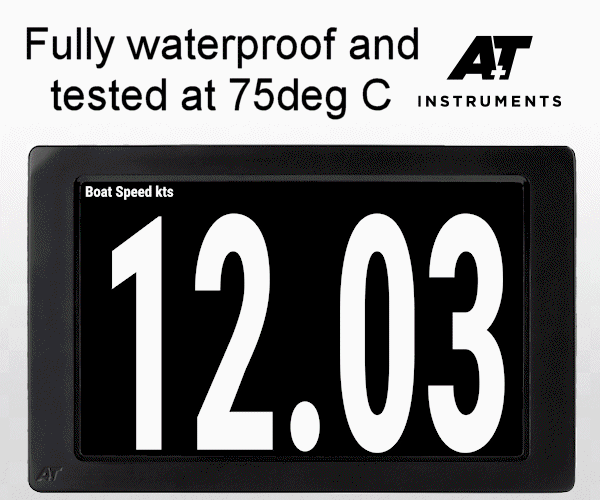


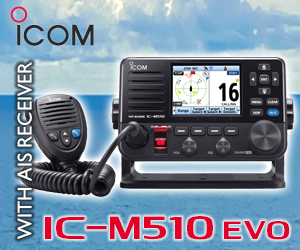

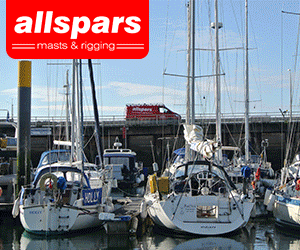



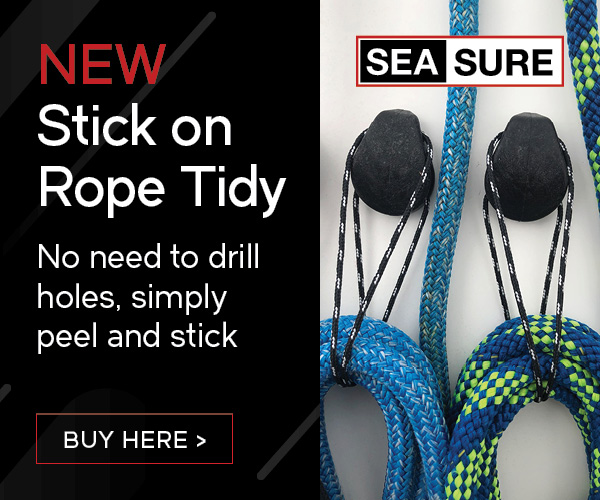
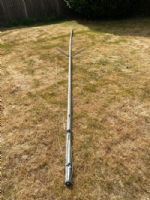







 Printable Version
Printable Version Delicious
Delicious Digg
Digg Facebook
Facebook Furl
Furl Google
Google MySpace
MySpace Newsvine
Newsvine reddit
reddit StumbleUpon
StumbleUpon Twitter
Twitter Windows Live
Windows Live Yahoo Bookmarks
Yahoo Bookmarks Topic Options
Topic Options